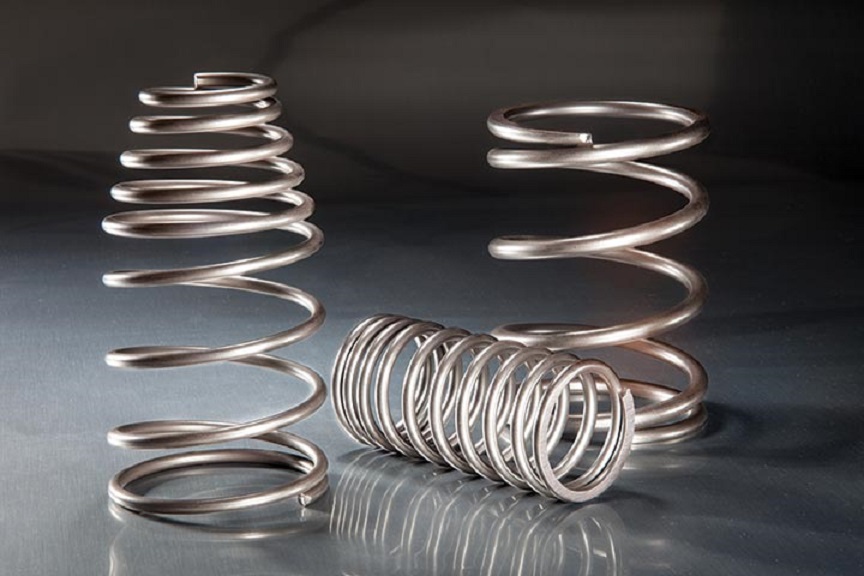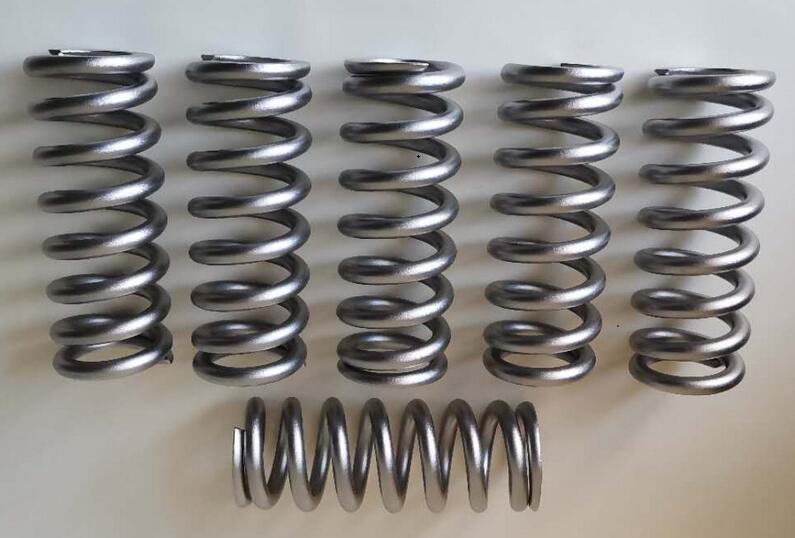Titanium Alloy Springs vs. Steel Springs

Titanium Alloy Springs vs. Steel Springs
Springs, such as titanium alloy springs and steel springs, are widely used in various fields of production and life. For example, automobiles, motorcycles, bicycles, other vehicles, computers, clocks, light switches, toys, clips, and other daily necessities all use springs, which mainly play the role of shock absorption and energy storage. In this article, let's try to find out the differences between titanium alloy springs and steel springs.

Titanium Alloy Springs
The Disadvantages of the Steel Springs
At present, the most widely used spring material is steel, which is required to have high strength and elastic limits. However, as the strength and hardness of steel increase, the sensitivity to stress concentration and the tendency to spontaneous fracture under constant load also increase.
If the hardness of the steel is too low, the reset ability of the spring will be reduced or even fail, which will lose the function of the spring. Although the spring is only a small part, once it breaks and fails, it will often cause the loss of a certain device or system function, and even lead to serious consequences.
The Advantages of the Titanium Alloy Springs
In recent years, titanium alloys have become a new choice of spring materials due to their high specific strength, low elastic modulus, and good corrosion resistance. Compared with steel springs, titanium alloy springs have the advantages of the lightweight, small size, and high resonance frequency. Their density and elastic modulus are only half that of steel springs, but their strength is almost the same as steel springs.
Because of these advantages, in practical applications, titanium alloy springs can be designed to have a smaller diameter and fewer turns than steel springs, and the weight is greatly reduced.
As far as springs are concerned, high strength is the most important performance requirement for spring materials, so high-strength β titanium alloys, such as Ti-3Al-8V-6Cr-4Mo-4Zr, are the best material for making springs.
The Applications of Titanium Alloy Springs
Titanium alloy springs are widely used in the automotive industry and can be used for engine valve springs and suspension springs. Titanium springs are often used in Formula One cars, racing motorcycles, and high-end Ferrari cars. In the aerospace and chemical fields, titanium springs have also been used for many years.
Thanks to the small size, lightweight, good corrosion resistance, and fatigue resistance of titanium alloy springs, they will also be widely used in the petrochemical industry, metallurgical industry, mining industry, and food processing industry in the future.
Conclusion
Thank you for reading our article and we hope it can help you have a better understanding of the differences between titanium alloy springs and steel springs. If you want to know more about titanium and titanium alloy springs, we would like to advise you to visit Advanced Refractory Metals (ARM) for more information.
Headquartered in Lake Forest, California, USA, Advanced Refractory Metals (ARM) is a leading manufacturer & supplier of refractory metals across the world. It provides customers with high-quality refractory metals and alloys such as titanium, titanium alloy, tungsten, molybdenum, tantalum, rhenium, and zirconium at a very competitive price.
{{item.content}}
LEVE A REPLY
{{item.children[0].content}}
{{item.content}}






